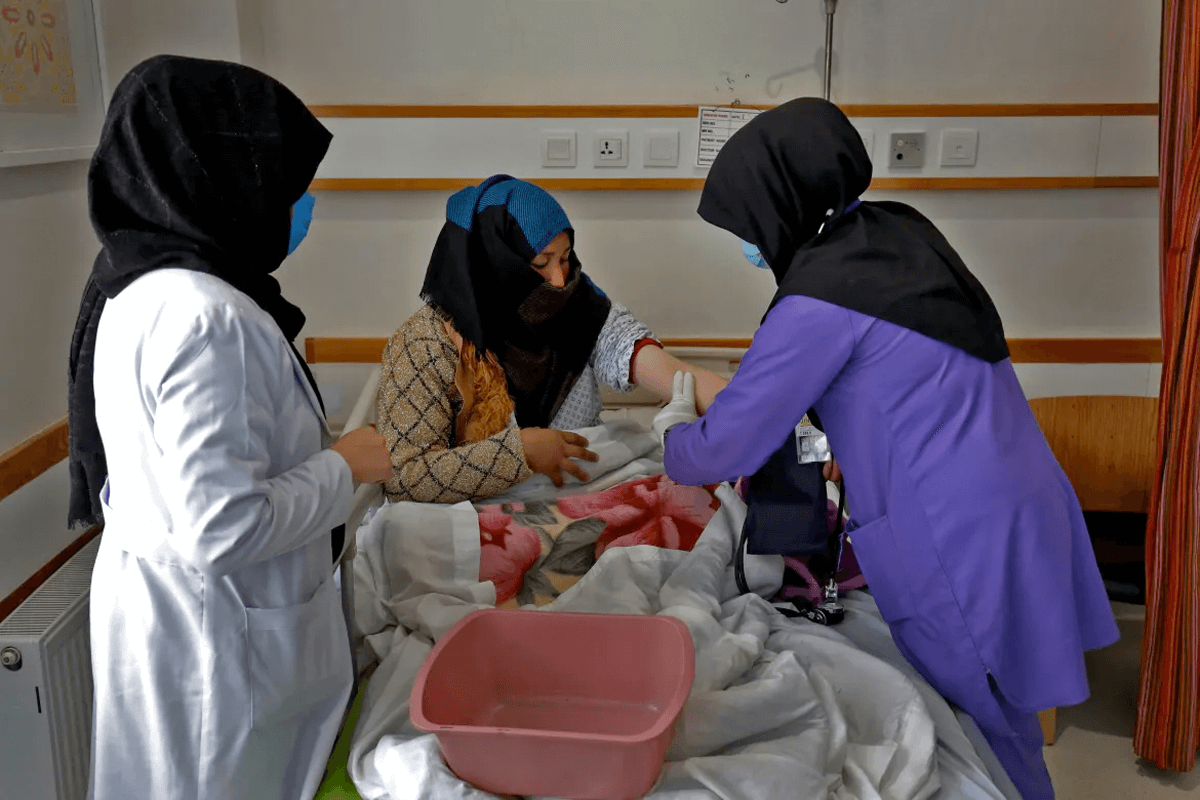
Abstract
Background
The Taliban takeover in August 2021 brought global economic sanctions, economic collapse, and draconian restrictions on women’s freedom of movement, work, political participation, and education. This study examined Afghan health workers’ experiences and perceptions of availability and quality of maternal and child health care since then.
Methods
We conducted a survey, using a convenience sample, of health workers from urban, semi-rural, and rural public and private clinics and hospitals across the 34 provinces, covering changes in working conditions, safety, health care access and quality, maternal and infant mortality as well as perceptions about the future of maternal and child health and health care. Interviews were conducted with a subsample of health workers to further explore their perceptions of changes in working conditions, quality of care, and health outcomes since the Taliban takeover.
Results
131 Afghan practicing health care workers completed the survey. The majority were women (80%) working in facilities located in urban areas. Most female health workers (73.3%) reported that they have not always been safe when going to and from work; 81% because of harassment by the Taliban when they did not have male accompaniment. Almost half of the respondents (42.9%) reported a decrease in availability of maternal and child care and 43.8% stated that conditions for providing care were “worse” or “much worse” than before. Almost one-third (30.2%) indicated that changed working conditions negatively impacted their ability to provide quality care, and 26.2% reported an increase in obstetric and newborn complications. Health workers also reported (38.1% ) an increase in sick child needs and an increase in child malnutrition (57.1%0. 57.1% reported decreases in work attendance and 78.6% a decrease in morale and motivation. Qualitative interviews (n = 10) of a subsample of survey participants expanded on these findings.
Conclusion
The combination of economic collapse, lack of sustained donor support for health care and Taliban interference with human rights has severely compromised access and quality of maternal and child health care. Strong and concerted international pressure on the Taliban to respect women and children rights to essential health service is critical for the future of the Afghan population.
SOURCE: Conflict and Health, by Nancy Glass, Rabia Jalalzai, Paul Spiegel, Leonard Rubenstein. 12 June 2023. In: RAISE/IAWG REVIEW LITERATURE, 3 October 2023 ; PHOTO: Trainee midwife examines a woman, ALJAZEERA, by Ali Khara/Reuters, 8 March 2023



